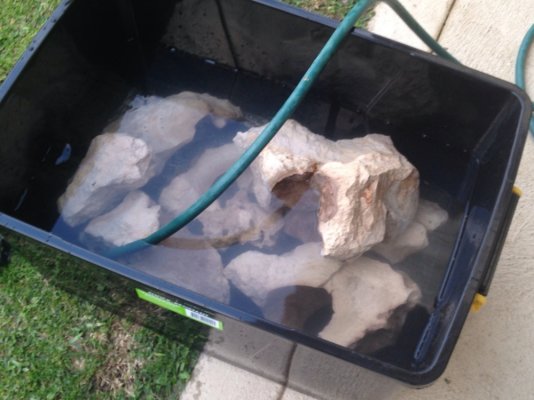mylifeasben
Aquarium Advice Apprentice
Hi all,
I live in an area where you physically can't dig a hole deeper than 10 centimetres without hitting limestone.
Can I use this (after washing in really well and maybe even boiling it) in a tank with electric yellows?
There's some really interesting rocks that have been dug up whilst they clear land over the road from me, and it looks like what you get from the lfs.
Any advice would be great!
Cheers,
Ben
Sent from my iPhone using Aquarium Advice
I live in an area where you physically can't dig a hole deeper than 10 centimetres without hitting limestone.
Can I use this (after washing in really well and maybe even boiling it) in a tank with electric yellows?
There's some really interesting rocks that have been dug up whilst they clear land over the road from me, and it looks like what you get from the lfs.
Any advice would be great!
Cheers,
Ben
Sent from my iPhone using Aquarium Advice

